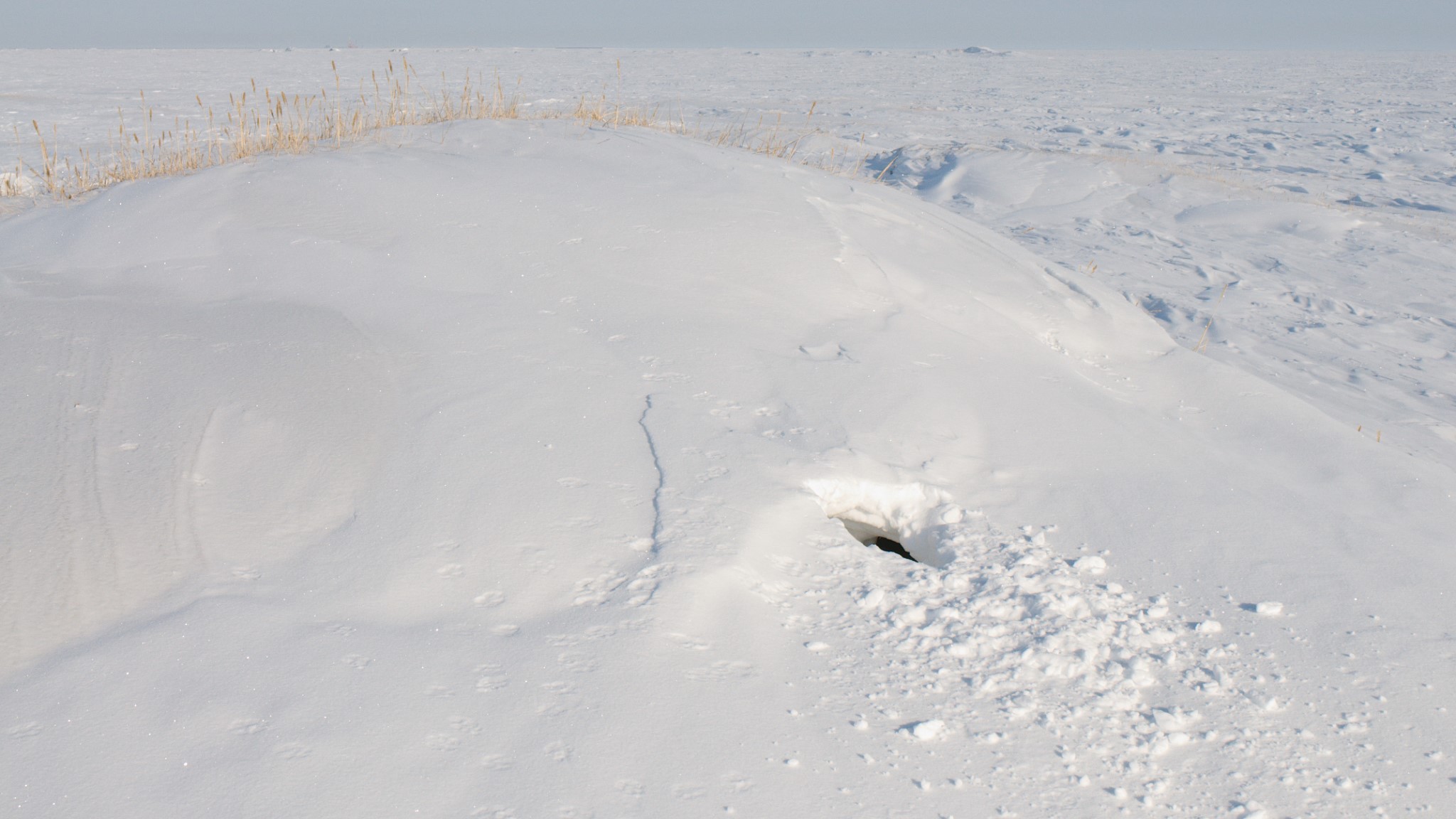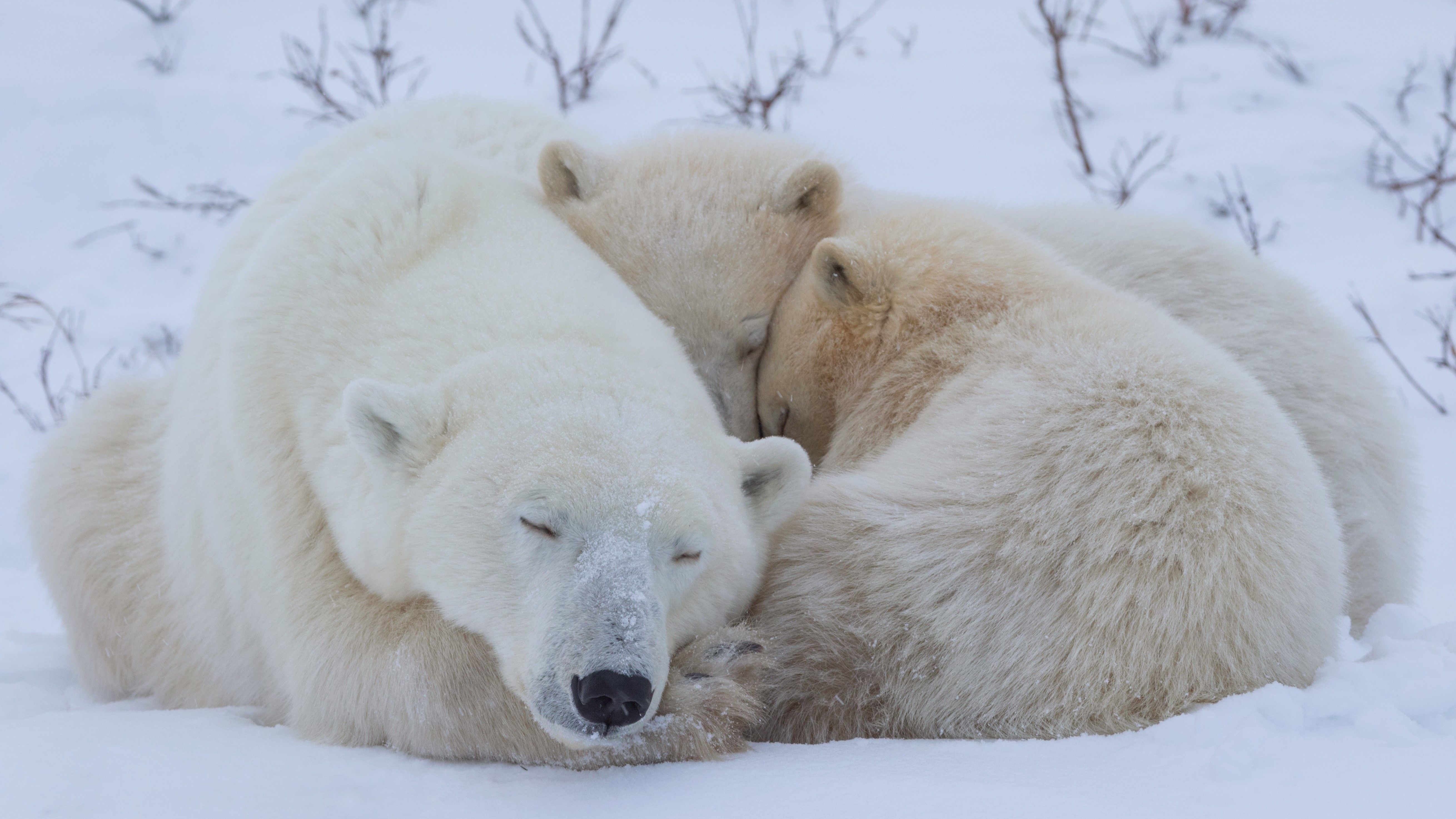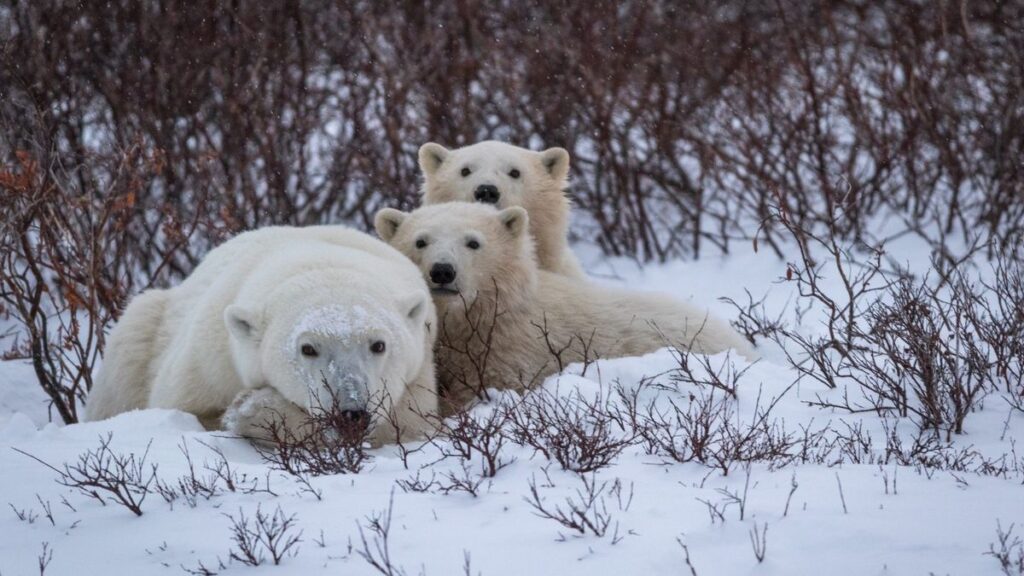Researchers have captured extremely rare footage of polar bear cubs leaving their snowy dens for the first time.
The footage, taken on the Norwegian archipelago Svalbard, shows a mother polar bear (Ursus maritimus) plodding through the Arctic island’s frozen landscape and her three cubs emerging one after another from a hole in the ice, before slipping and sliding around the frozen terrain.
The scene is from one of 13 den sites on Svalbard that scientists have been monitoring for nearly a decade to shed light on denning behavior, which is notoriously difficult to study because polar bear moms build the dens underground in hard-to-access areas.
The researchers described new aspects of denning behavior in a paper published Thursday (Feb. 27) in The Journal of Wildlife Management.
“It’s a pretty special thing to see polar bear cubs emerge into this vast, white landscape that appears so inhospitable,” lead author Louise Archer, a Polar Bears International postdoctoral fellow at the University of Toronto Scarborough, told Live Science in an email.
Related: Polar bears are getting horrific injuries and huge ‘ice balls’ on their paws because of climate change, researchers say
“In Svalbard, polar bears build their dens on the slopes of steep mountainous areas, and it’s hard to imagine how cubs could find their feet in this severe terrain,” Archer said. “Watching them sliding, tumbling, and even climbing up on their mother was truly remarkable.”
The new study offers a glimpse at one of the most vulnerable and critical periods of a polar bear’s life, researchers said in a statement.
Polar bears spend the winter in their dens. Pregnant females give birth around early January and nurse their cubs through spring, when the family emerges to slowly make its way to the sea ice. Newborn polar bears are hairless and weigh just 1 pound (0.5 kilograms). However, they grow quickly thanks to their mother’s fatty milk and reach 22 pounds (10 kg) by the time they emerge as cubs.
Maintaining healthy polar bear populations depends on cubs’ survival, which is only around 50%, according to the statement. Cubs survive only if their dens remain undisturbed throughout the winter and they can roam the surrounding area after emerging. Human activity jeopardizes both of these requirements.

“Polar bear mothers are having increasing difficulties reproducing due to climate-driven changes, and are likely to face further challenges with the expansion of the human footprint in the Arctic,” Archer said in the statement.
To assess human influence on polar bear reproduction, researchers need to better understand denning behaviors and timings. A decade ago, Archer and colleagues fitted 13 female bears with GPS collars that recorded the animals’ locations, body temperatures and levels of activity. The researchers used this data to locate the bears’ dens, before traveling to Svalbard to install camera traps outside them.
The study is the first to combine collar data with camera footage of polar bears. “Every den we monitored had its own story,” Archer said.
Throughout the study period, the moms and cubs first emerged in early March, sometimes venturing out for just a few minutes before returning to their dens. The families abandoned their hideouts earlier than previously recorded on Svalbard, but more observations are needed to confirm if this is a new trend, according to the statement.

The bears remained near their dens for an average of 12 days before heading off toward the sea ice, where mothers teach their cubs to hunt. The cubs stayed with their moms 95% of the time, rarely leaving the den alone. On Svalbard, cubs remain with their mother for 2.5 years after birth, according to the statement.
The researchers couldn’t follow the bears once they left the den site. “I would love to know how the polar bear families we monitored fared once they departed the den,” Archer told Live Science by email. “How soon does the mother catch a seal, [and] do her cubs manage to survive those initial few weeks when they venture out on the sea ice?”
Polar bears are currently snuggled up their dens, but it won’t be long before they emerge again. Archer and colleagues are in Svalbard now, collecting information that may help them fill these gaps.
“We’re excited to introduce new tools to monitor bears during this vulnerable time and to gain insight into their behavior across the Arctic,” Archer said in the statement.
